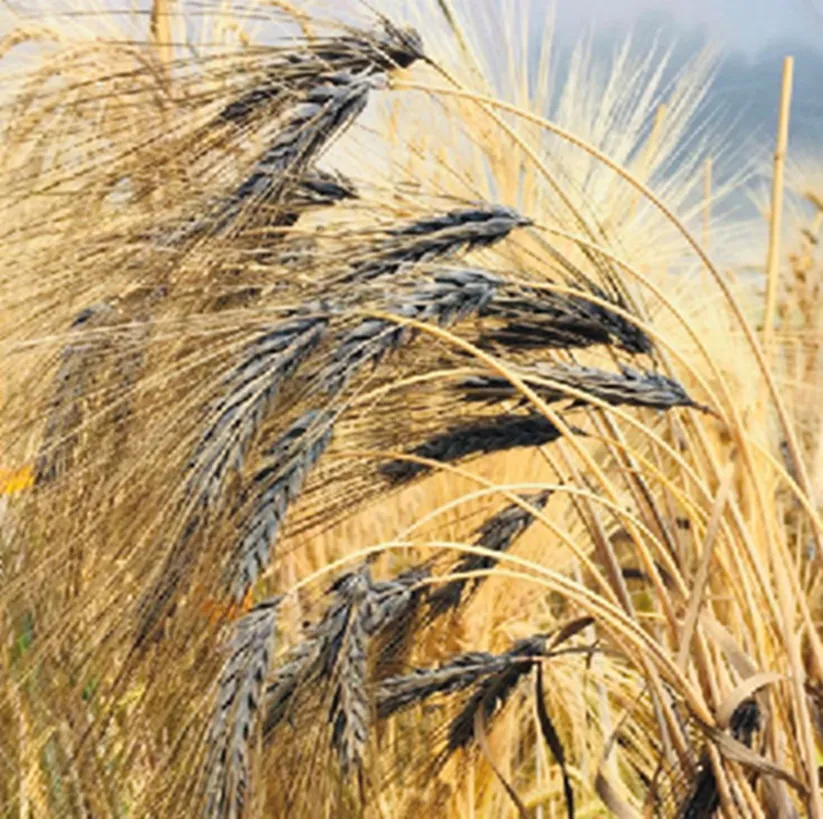Barley to support food and drink innovation
Project Lead

Challenges
Barley is an important Scottish crop in terms of contributing to the distilling and brewing industries and as a source of animal feed. It is underutilised as a healthy and potentially sustainable food source and our previous research has shown that barleys entering the food supply chain are not bred for food but destined for distilling. Grain bred for malting is not rich in components of value for human nutrition, for example (1,3;1,4)-β-glucan, micronutrient vitamins and minerals as well as bioactive phytochemicals associated with reduction of non-communicable diseases, such as type 2 diabetes mellitus (T2DM) and cardiovascular disease. Having analysed barley lines, we have identified several of higher nutritional value and are particularly interested in those high in phytochemicals, as we have shown that these compounds in other plant species can attenuate glucose response. This, in addition to the high β-glucan content, could make barley an important component of a diet helping to prevent metabolic disorders.
Questions
Solutions
This project explores whether whole grain phytochemical-rich barley accessions can be developed from ancient grain (with potentially improved climate credentials) to produce a significant change in blood sugar levels to complement the health claims associated with lipid lowering benefits, supporting new food and drink market opportunities.
Selection and Analysis of Barley Accession
To do this, we will analyse barleys from a range of crosses bred from ancient landraces and select on based on high levels of β-glucan and phytochemical content. These are naked barley’s meaning the will not require to be dehulled. This is beneficial for commercial processing, reducing time and costs, as well as potentially allowing many of the micronutrients/phytochemicals found in the hull to be in the grain. The barley sample and a selected commercial line will be characterised for their macronutrient (protein, fibre), micronutrient and bioactive phytochemical content using standardised methods.
Intervention Study
We will be conducting an acute dietary intervention study involving volunteers at risk of or living with T2DM. We will determine how the barley accession impacts on blood glucose and insulin levels compared to the commercial barley and wheat. We will also host a focus group with individuals at risk of or living with T2DM, and other important stakeholders in the supply chain, to understand barriers and opportunities for incorporating barley-based foods designed to reduce blood lipids and glucose into the diet. This evidence will be used to support a multi-disciplinary approach to develop barley as a sustainable healthy staple food ingredient or wholegrain for Scotland’s farming and food production markets.
The outcomes of this project will help to open-up new markets for Scottish produced foods to meet the needs of people choosing a healthy lifestyle, as well as those living with or at risk of T2DM.
Project Partners
Progress
2022 / 2023
Our research has found that barley flours developed from ancient grains were valuable ingredients for food reformulation. They contained high amounts of β-glucan (an important fibre for reduction of blood lipids) and were rich in micronutrients and phytochemicals. An important characteristic of these barleys was that they can go from field to table with less processing and potentially be more climate-resilient, as well as requiring less pesticides and nutrients. Being coloured (black, purple, yellow and brown) they could support food and drink innovation
One large slice of bread containing the black barley flour (65 g) delivered the required amount of β-glucan to reduce blood cholesterol, as well as the recommended nutrient intakes for several micronutrients. When consumed in an acute human study, the black barley bread also produced a significant reduction in blood insulin and a trend to reduce blood glucose when compared to traditional white bread. Evaluating the acceptability of these products, evidence showed that biscuits were considered the most difficult to remove from the diet and that both biscuits and bread should be targets for reformulation. Through the Scottish Government’s Strategic Research Programme (SRP) a clear plan for reformulation of flour-containing products was developed and follow-on funding secured from Innovate UK to work with a Scottish bakery business supplying the major supermarkets to transition healthy sustainable crops into staple baked products product at scale.
We have presented the potential of the barley’s studies in this project at several events including the Royal Highland Show, the Real Bread Festival, Arable Scotland and have had discussions with farmers, processers, bakers and NGOs. In addition to the Innovate UK funding, we also leveraged funding from Interface to explore the potential of barley co-products and produced a public facing article (Barley Vous?) for Sustain (the alliance for better food and farming).
This project was completed on the 30th of June 2023. The end of project report can be found here.
Previous Projects
Related Projects
Novel Crops
Novel Crops: To address opportunities for producing alternative protein and carbohydrate crops in Scottish agriculture for fish and crustacean feed, bioenergy, bio-refining, animal feed and human consumption, and to develop design criteria for integrating suitable alternative legume and non-legume crops as sole and intercrops within rotations whilst also accounting for agronomic and ecosystem services.
There are two main areas of research:
Improving Food and Drink Production
There is a focus on foods which appeal to the customer in terms of taste, appearance and price. Such foods may not be compatible with the current health messages in key policy documents and legislature. A central question for public health nutrition is whether industrially processed foods can be reformulated to improve their healthiness. At the same time reformulation has to be acceptable to both manufacturers and consumers. Consequently, the main driver of this RD is to reformulate foods improving their healthiness while retaining consumer appeal and food manufacturer acceptability.
